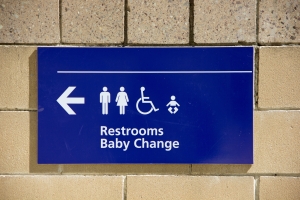Small change

Summary: Good news on the software patents front as the USPTO starts rejecting software patent applications, based on patent lawyers' words
There is a curious new piece from zealous patent lawyers who promote software patents and equate sales with need for patents, adding foolish statements like the conclusion below (from WatchTroll's co-writer): "The Alice decision will no doubt take some time to shake out in the lower courts and perhaps some certainty (i.e., one or more tests for each step in the Mayo framework) will develop. In the meantime, I note that according to the U.S. Dept. of Commerce, the U.S. software and IT services industry had revenue totaling US$606B in 2011, with overall research and development spending of US$126.3B, and a U.S. workforce of nearly two million people. Further, a PriceWaterhouseCoopers report pegs the cumulative value of technology-related M&A activity for 2013 at US$99.8B, with software representing 25% of this total value and 35% of the total deal volume. This is a substantial amount of U.S. commerce that deserves stable and predictable patent law protection! Until then, code (and patent) on!"
This is a completely bogus argument, whose premise can be used to say the very opposite about software patents. Just because he ends with an exclamation point doesn't mean he is right. Quite the contrary. These patent lawyers only care about themselves. The status quo of software patents is mostly beneficial to patent trolls, as pointed out by
this new article that says: "Surveys dating back to 1996 and statements by leading visionaries in the area of software programming such as Richard Stallman show that most people in the industry are not in support of software patents. These show that reform is required in this area and most are of the belief that software development is impeded by the fact there may be patents and/or copyrights. These patents and/or copyrights may prevent them from releasing their product on to the market and may also cause monetary damage to them in terms of legal fees and lost sales arising out of potential litigation."
Meanwhile,
looking at the latest from Microsoft's propaganda and FOSS mole blog, the company makes money out of taxing GNU/Linux, due to SUSE's appalling complicity. This is what patents on software lead to.
While SUSE does
continue to exist (although with diminished presence) people around the world
should just boycott it. Microsoft wants software patents not to encourage innovation but to assure extortion; likewise, patent lawyers fight hard to re-frame the SCOTUS ruling because it limits their parasitic overreach which taxes software everywhere.
Going back to the previous article, let us remember who else benefits from software patents. This is a correlation that we noted numerous times before, especially when arguing that patent scope -- not trolls -- is the core issue and the way to tackle this issue. To quote just the conclusion: "The fourth chart depicts that unto 93% of patent litigations in the software area are being initiated by NPEs (Non-practicing entities) aka patent trolls; whereas for other technology areas, the percentage of patent litigations being initiated by NPEs are in a minority. The fifth chart depicts the percentage of patents with at least one invalid claim (as decided by the courts during the course of litigation), wherein the invalidity may be based on novelty and/or non-obviousness. 38% and 53% of the patents in the software and business method area respectively have at least one invalid claim; whereas only 27% of patents in the other technological areas have at least one invalid claim. Further, this chart also shows that 59% of patents assigned to trolls have at least one invalid claim. The sixth chart depicts the rising number of patent litigations in the courts, with chart #7 depicting that the ratio of litigations related to patents from the software/business method have been rising at an average of 2000 per annum. The ninth chart depicts the costs of patent litigation and the ever increasing trend of the costs."
Gene Quinn, the WatchTroll himself, is a patent lawyer who is actively lobbying for software patents. Based on
this important article from him (important for what he reports, not his commetary), things rapidly improve in the US as software becomes hard too patent and hence also hard to enforce through the courts. To quote the software patents booster himself: "A friend who handles large numbers of software patent applications for some of the most elite technology companies sent me an e-mail late last week about what he has already started seeing coming from patent examiners. He says he has seen the below form paragraph twice within a week. Most alarming, in one case the form paragraph came in the form of a supplemental office action, but the outstanding original office action didn’t have any patent eligibility rejections under 35 U.S.C. 101."
Well, he is very much upset by this. He accuses the messenger. He says: "The claims are abstract because the claims do not recite limitations significantly more than an abstract idea. Truthfully, this rather ridiculous logical construct can’t be blamed on patent examiners when the Supreme Court refuses to provide a definition for what is an abstract idea."
All software patents are abstract (not code), so they should all be seen as invalid. We explained this several times in the past month. This is something that lawyers struggle to grasp, either because they don't want to grasp it (cognitive dissonance) or because they cannot.
⬆

